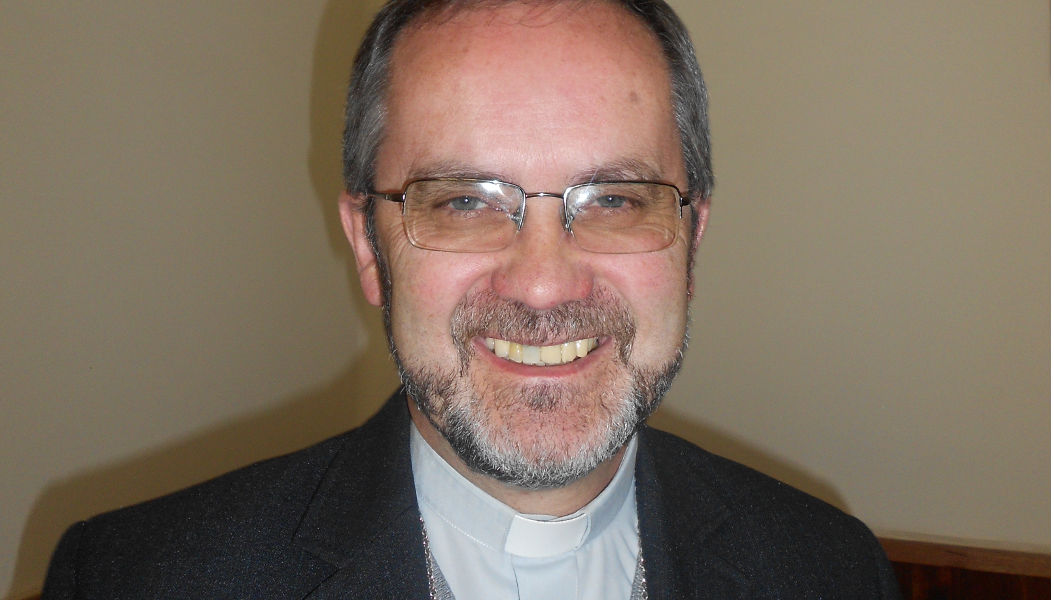
 Since it had been announced verbally and with the tacit suppression of Communion in the hand in the Diocese of Oruro (Bolivia), it has now been formalized by an Episcopal decree, this action constitutes a true landmark of exceptional courage by Monsignor Bialasik. It should be noted that priests themselves anywhere in the world without any permission can individually avoid the risk of desecration by the same refusal. Is there no risk of desecration whenever Communion is given into the hand and the particles fall to the ground and are trampled, especially when you see that 99% of those who receive it do not make any examination of his hands to see if there is any trace of particles? Is there no evident risk of desecration in Spain following the recent scandal of an "artist" who stole consecrated Forms? Hopefully the courage of Bishop Bialasik will be an example for many. Bravo Your Excellency!
Since it had been announced verbally and with the tacit suppression of Communion in the hand in the Diocese of Oruro (Bolivia), it has now been formalized by an Episcopal decree, this action constitutes a true landmark of exceptional courage by Monsignor Bialasik. It should be noted that priests themselves anywhere in the world without any permission can individually avoid the risk of desecration by the same refusal. Is there no risk of desecration whenever Communion is given into the hand and the particles fall to the ground and are trampled, especially when you see that 99% of those who receive it do not make any examination of his hands to see if there is any trace of particles? Is there no evident risk of desecration in Spain following the recent scandal of an "artist" who stole consecrated Forms? Hopefully the courage of Bishop Bialasik will be an example for many. Bravo Your Excellency!
Forward Faith
DECREE OF COMMUNION IN THE MOUTH
No. 001/16
KRZYSZTOF J. BISHOP Bialasik
BY THE GRACE OF GOD AND OF THE HOLY APOSTOLIC
Bishop of the Diocese of Oruro - BOLIVIA
WHEREAS, the law of the Church states:
- To receive communion in the mouth is the universal law of the Church, as is recalled in the Instruction Memoriale Domini and Immensae Caritatis (May 29, 1968: AAS 61, 1969, 541-546; January 29, 1973: AAS 65, 1973, 264-271; cf. also instruction. Redemptionis Sacramentum on certain matters to be observed or to be avoided regarding the Most Holy Eucharist, issued on March 25, 2004, n 92;.. Cf.Missale Romanum, Institutio generalis , n. 161), where it is enshrined as a general rule the traditional form of distribution in the mouth, and makes it (paragraph 8) "not only because it is based on traditional use of many centuries, but mainly because it expresses the reverence of the faithful towards the Eucharist "but also (paragraph 10) that" ensures more efficient distribution of holy Communion with reverence, decorum, and dignity befitting, to ward off all danger of desecration of the Eucharistic species ".
- That communion in the hand is permitted only as an exception to this universal law that the Holy See may grant case by case to an Episcopal Conference when she asks (Congregation for Divine Worship, Prot N. 720/85. Notification about communion in the hand , 3-IV-1985).
- That the management of the sacred liturgy depends solely on the authority of the Church in each diocese as exercised by the diocesan bishop (canon 838, par. 1 Code of Canon Law ), which is required to issue norms on liturgical matters for all the portion of the Church faithful entrusted to him (canon 838, par 3. Code of canon law ;. cf. Instruction Redemptoris Sacramentum ., n 19), taking into account the specific needs of it and the good of souls.
- Both the instruction Redemptoris Sacramentum (n. 92) as the Sacred Congregation for Divine Worship and Dis. Sacraments ( dubium : notitiae .. 35 (1999) pp 160-161) insist that " If there is a risk of profanation, not to distribute Communion in the hand to the faithful . ''
- GIVEN that to insist on the general practice of communion in the mouth is more convenient in this Diocese, not only to help the most devout reception of the Eucharist and sustain faith in the real and substantial presence of Christ in it, but also to prevent the desecration of the Body of Christ, since it has been noticed lately that some people do not consume the Host upon receipt, and they want to take It out of the temple for unknown purposes (cfr. My homily at the Mass of 16 August 2015).
DECREE
We REAFFIRM for the Diocese of Oruro THE OBLIGATION TO FOLLOW THE LAW OF THE CHURCH TO RECEIVE COMMUNION IN THE MOUTH, NOT IMPLEMENTING THE DISPENSATION OF Communion in the hand.
Communicated and published to the appropriate and filed . It is given in the Episcopal See, on the Solemnity of the Epiphany, on January 6 in the Year of Our Lord 2016.
Rev. Pbro. Ludgardo Carlos Ortiz
Rev. Pbro. Ludgardo Carlos Ortiz
Chancellor of the Diocese of Oruro
Mons. Krzysztof Janusz Bialasik, SVD
Bishop of the Diocese of Oruro













%2010.51.46%E2%80%AFa.%C2%A0m..png)





















